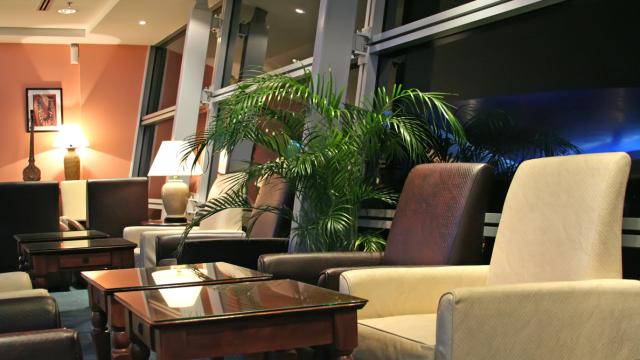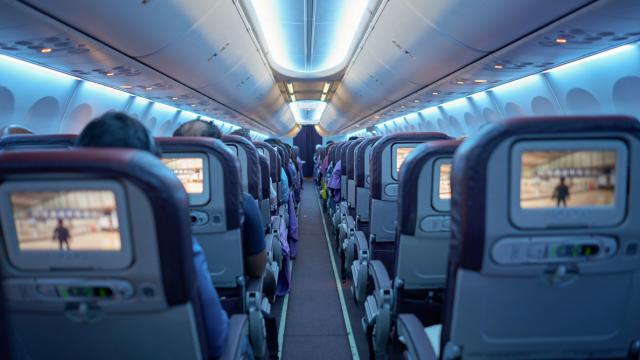A class of their own

The global financial crisis that began a decade ago dramatically dampened demand for business class air travel, possibly for good, but are we on the verge of a renaissance? Some seem to think so.
Airline association IATA regularly reports on the proportion of traffic that travels in premium classes. After 2008, that figure fell to around 5-5.5% and has remained there ever since. Premium class is far more important for some markets than others. It accounts for around 15% of the traffic across the North Atlantic and 25.7% of revenues, according to IATA.
Premium classes between Europe and Africa, meanwhile, account for just 4% of traffic and around 7-8% of revenues. Asia sits somewhere in between but premium demand has been particularly strong recently in markets to, from and within Asia, according to IATA. With investment banking still in the doldrums and oil prices around half of what they were before the financial meltdown, it is perhaps no surprise that premium classes have not recovered. In the most recent release of statistics, IATA says that premium classes accounted for 5.2% of all traffic in the first eight months of 2017.
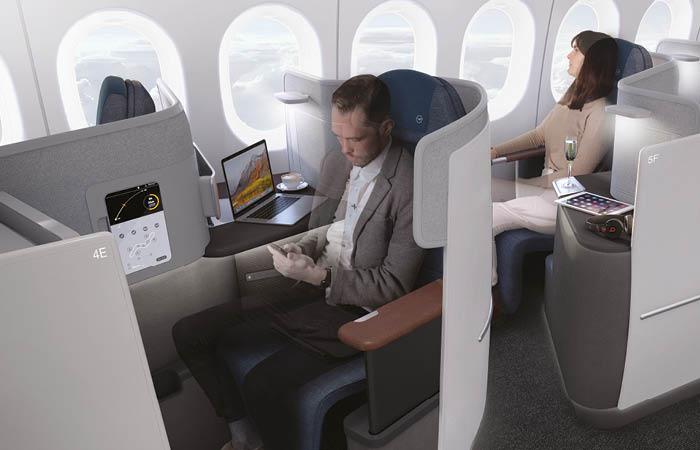
WHERE IS THE EVIDENCE OF THIS RENAISSANCE?
Premium demand has come back
Airline consultant John Strickland says business class is enjoying a resurgence. “If you think back to 9/11 and the financial crisis, when people said that the days of premium travel were over, the evidence has been this is not the case. Over time demand comes back.”
IATA’s statistics over the years show a strong correlation between growth in world trade and business-related premium travel demand.
Premium demand also tends to track the relative performance of shares in the global banking, oil and mining sectors compared to the wider market.
Kavon Bagheri, FCM’s Air Product Manager, says, “Premium travel is growing at a great rate. This is in part due to the increased investment airlines are making in their premium products, but also due to the competitive pricing being offered by airlines.”
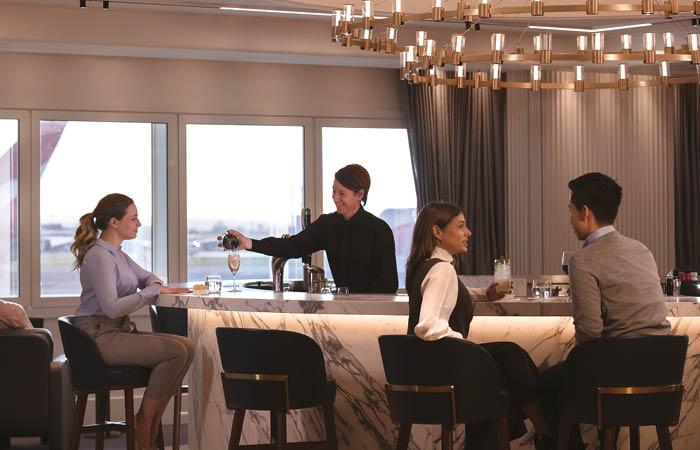
A STRONGER PREMIUM DEMAND
And less appealing economy services...
You could also look to what is happening at IAG, the parent company of British Airways and Iberia.
For every month in the past year, it has reported that premium traffic has increased over the previous year. In November, for example, the uptick on the previous year was 7.3%. Strong premium demand at IAG is no doubt behind its intention to invest £400 million to improve its long-haul business class service Club World.
The changes include a restaurant-style catering service where passengers will be able to choose their food from a trolley, better inflight Wi-Fi and better lounge facilities at key airports. The improvements will first be rolled out on Heathrow-JFK services this year with other routes following in 2019. It also plans to launch Club Europe on UK domestic services. At the same time, it is making its economy services less appealing; for its new fleet of A320neo and A321neos, the seats in economy will be “pre-reclined” – a code for not being adjustable.
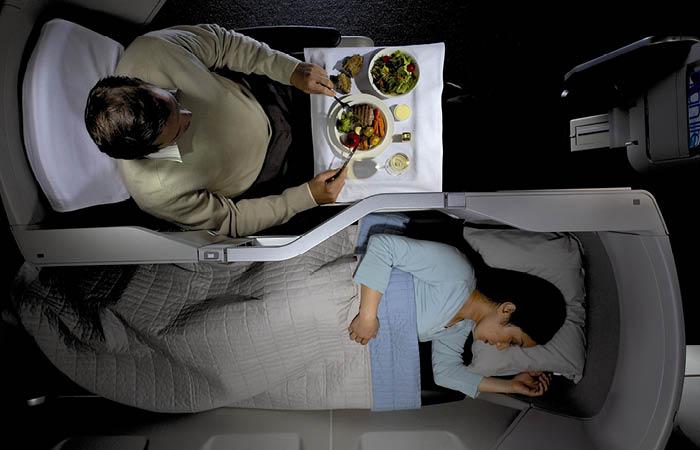
COMFORT IS CRUCIAL
Quality travel wins over lower fares
Other airlines are also investing in business class. KLM announced a new World Business Class in 2016. In 2017 Emirates unveiled an updated version of its popular Onboard Lounge. The new look retains the trademark horseshoe bar but revamps the seating to feel more like a luxury yacht with tables and window views.
While many corporate clients are still looking for lowest fares in business class, comfort is still crucial, says Bagheri. “Lie-flat beds would be a minimum expectation (especially on a night flight), but other aspects such as the quality of the departure lounge, on-board service, on-board bar/lounge area, quality of WIFI, access to an arrivals lounge, etc. will have a huge impact on the decisionmaker’s final choice. Ultimately, if the price is not drastically different and the service is not too dissimilar then the final decision will likely come down to which airline will offer the customer the best loyalty advantage.”
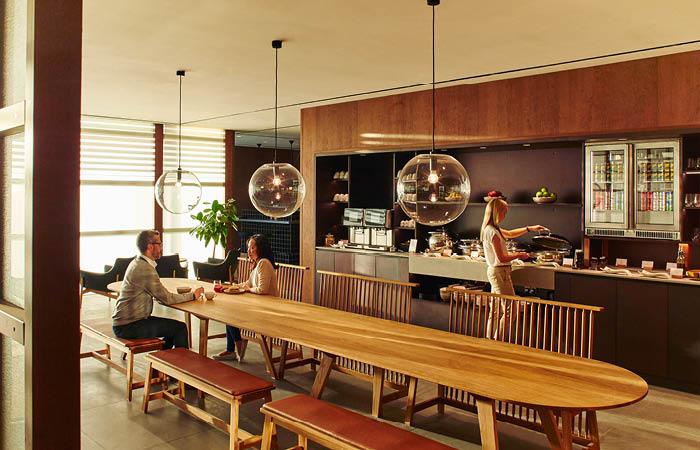
INNOVATION ON THE GROUND
Luxurious lounges, quality bars and WiFi
John Strickland says that many innovations in business class have not happened in the air but rather on the ground. British Airways, for example, has opened new lounges at Gatwick South and Boston and is revamping those in Edinburgh, Cape Town, Amsterdam, Belfast, Washington, Singapore and Dubai.
Qantas meanwhile has recently opened a stunning new lounge for its premium passengers passing through Heathrow Terminal 3. It features a tended marble bar overlooking the tarmac as its centrepiece, food from chef Neil Perry’s Rockpool and spa facilities. Cathay Pacific has also opened a new lounge at Terminal Qantas is known for its desirable lounges 3 and has also upgraded its already impressive lounges in Hong Kong.
